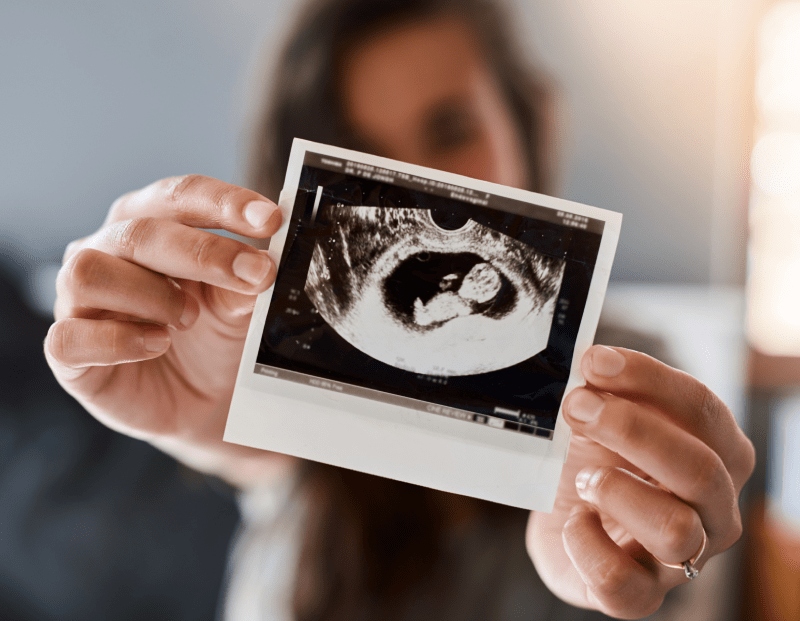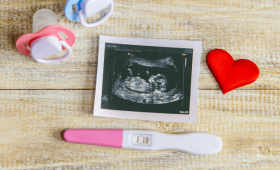Why Do Many Couples Prefer Abroad For Affordable IVF Treatment?
The most important reason why couples seek affordable IVF treatment abroad is the desire to avoid the financial burden imposed by high costs in their home countries. Some countries offer significant budget advantages by keeping medication, laboratory, and doctor fees lower without compromising the quality of care. Furthermore, easier access to some advanced genetic tests or procedures like donation, which may not be legally permissible in their home countries, is also a factor abroad. The combination of these factors makes international treatment an attractive and accessible option.
How Much Do International IVF Treatment Costs Vary?
International IVF treatment costs vary greatly depending on the country’s economic conditions, healthcare system, and the quality of services offered by the clinic. An IVF cycle in Western Europe or North America can be three to five times more expensive compared to some Eastern European or Mediterranean countries. These cost differences can be life-saving for couples who need to undergo multiple attempts, making overseas options highly appealing. It is critical to include medication, travel, and accommodation expenses in the total budget planning, in addition to the treatment itself.
Does Quality Or Success Rate Decrease With Low-Cost Treatments?
Low-cost IVF treatments do not always equate to low quality; costs are often influenced by factors such as the country’s general economic structure, personnel wages, and medication prices. The important thing is that the selected centers possess international accreditations and maintain high-technology laboratory standards. Many affordable centers exist that achieve successful results and apply modern protocols. While benefiting from the price advantage, couples must thoroughly investigate quality indicators such as transparent success rates and patient reviews.
What Is The Average Cost Of IVF Treatment By Country?
The average cost of IVF treatment varies greatly from country to country, depending on the package contents. For instance, the cost of a basic IVF cycle in some popular medical tourism destinations can be as low as one-third or even one-quarter of Western standards. These prices usually include the initial consultation, egg retrieval, laboratory procedures, and embryo transfer. However, medications and additional procedures (like ICSI, PGT) are often excluded from these basic packages. For a clear comparison, Cure Holiday can provide you with the most up-to-date price analysis.
What Additional Expenses Should Be Calculated When Receiving Treatment Abroad?
When planning overseas IVF treatment, it is necessary to carefully calculate not only the clinic fees but also travel and accommodation expenses. The cost of staying for the duration of the treatment (usually 15-20 days), flight tickets, local transportation costs, and daily food and drink expenses constitute a significant part of the total budget. Furthermore, unforeseen expenses that need to be set aside for follow-up appointments or potential complications should also be considered. These additional expenses have the potential to double the treatment cost.
How Should Success Rates In Different Countries Be Compared?
Comparing the success rates reported by clinics in different countries can be difficult and misleading because success rates are generally calculated based on different age groups and different patient populations. A high success rate in one country might simply be due to that center predominantly serving younger patients. For a reliable comparison, it is a more accurate approach to look at live birth rates within the same age group (e.g., under 35 years old) and check how many embryos the clinic transfers.
What Differences Do Legal Regulations Show In Overseas Treatment?
When planning overseas IVF treatment, the legal regulations regarding embryo freezing duration, donation (egg/sperm), or surrogacy in the destination country should be researched in detail. Some countries enforce strict rules for their own citizens but may be more flexible for international patients. For example, the legally set number of embryo transfers in some locations might differ from your expectation. Clarifying these legal and ethical boundaries before starting treatment is vital for the couple to make all process-related decisions with peace of mind.

What Should Be Considered When Choosing A Clinic In The Most Affordable Countries?
When selecting a clinic in the most affordable countries, the priority should be given to international accreditations, laboratory technology, and the team’s experience rather than just cost. The incubators used by the clinic, embryo freezing techniques, and the transparency of success rates are fundamental indicators of quality. Furthermore, considering the clinic’s communication language, international patient experience, and the support offered in emergencies is important. Cure Holiday meticulously selects reliable and affordable centers that meet these criteria for you.
Which Preliminary Tests Should Be Done And Sent Before Going Abroad?
Before starting overseas IVF treatment, the couple should have basic infertility tests such as hormonal tests (AMH, FSH, LH, E2), a uterine scan (HSG), and detailed sperm analysis performed in their home country and send the results to the clinic for preliminary evaluation. These preliminary tests shorten the time spent abroad and allow the treatment protocol to be planned remotely. Sometimes additional genetic tests or intrauterine assessments may also be requested. Having all test results translated into English will speed up the evaluation process.
What Is The Minimum Stay Required Abroad During The Treatment Period?
For a standard fresh IVF cycle, a stay of a minimum of 15 to 20 days may be required abroad due to the time elapsed from the start of ovarian stimulation until the embryo transfer. This period includes monitoring follicular development, egg retrieval, and embryo development. However, if a frozen embryo transfer (FET) is to be performed, this duration may generally decrease to a shorter period like 3 to 7 days, depending on the uterine lining preparation protocol. You should organize your accommodation and leave plan according to these durations.
How Is The Translation And Language Barrier Overcome In Overseas IVF Treatment?
The translation and language barrier in overseas IVF treatment is overcome through professional translation services provided by the clinic’s international patient coordinators or medical tourism agencies. The presence of interpreters fluent in medical terminology during critical processes (consultation, informed consent, egg retrieval) prevents communication errors and misunderstandings. Cure Holiday organizes interpreter support to accompany you throughout the process, ensuring communication in your native language and maximizing your treatment comfort.
How Does The Frozen Embryo Transfer (FET) Process Work Abroad?
The Frozen Embryo Transfer (FET) process abroad is less invasive compared to a fresh cycle and requires a shorter travel time. The prospective mother’s uterus is prepared for the transfer with a medication protocol (estrogen and progesterone) that starts in her home country. At the determined stage, travel abroad is only required for the transfer procedure, and one can usually return home a few days later. This protocol does not lower the cost of the treatment itself but offers significant advantages in terms of travel, accommodation, and time off work.
How Do Lifestyle Changes Before Treatment Affect Success Abroad?
Lifestyle changes made before IVF treatment positively affect treatment success, regardless of where the treatment is performed. Quitting smoking and alcohol, achieving an ideal weight, and switching to an antioxidant-rich diet enhance the potential for healthy embryo development by improving both egg and sperm quality. This preparation process ensures you are physically ready for the treatment and significantly increases your chance of receiving a return on the investment made in international treatment costs.
Where Should Medications To Be Used In Overseas Treatment Be Obtained?
Medications to be used in overseas IVF treatment are generally obtained in two ways: Either they are obtained at a more affordable price from the clinic or contracted pharmacy in the country where the treatment will take place, or they are purchased from your home country with the clinic’s prescription. Since medication prices can vary greatly from country to country, obtaining them abroad is usually more advantageous to reduce the total cost. The clinic’s instructions regarding the cold chain requirements of the medications and their transport during travel must be strictly followed.
What Is The Impact Of A High-Technology Laboratory On Costs?
One of the most important factors determining the cost of IVF treatment is the level and quality of the laboratory technology the clinic possesses. High-technology incubators, modern freezing techniques (vitrification), and advanced procedures like microinjection (ICSI) have higher initial investment and operating costs. However, since this technology increases embryo quality and thus the chance of success, the additional expense can increase the probability of achieving a successful outcome in the long run, thereby reducing overall treatment costs.
What Is The Role Of Medical Tourism Agencies (Cure Holiday) In This Process?
Medical tourism agencies, especially specialized organizations like Cure Holiday, undertake the entire complex organization of overseas IVF treatment. Their roles include selecting reliable and accredited clinics, finding treatment packages that suit the patient’s budget, making accommodation and transportation reservations, providing translation services, and managing seamless communication between the patient and the clinic throughout the process. This service significantly alleviates travel stress by allowing couples to focus solely on the treatment and guarantees the smooth progression of the entire process.
What Are The Visa And Travel Requirements For Overseas IVF?
Visa and travel requirements for overseas IVF treatment vary depending on the destination country and the patient’s nationality. Some countries may require special visa types for patients coming for medical treatment or may provide visa facilitation. Checking the passport validity period, preparing official documents such as the clinic’s acceptance letter, and arranging travel insurance are important. It is always recommended to keep the visa duration and travel arrangements flexible against the possibility of an extension during the treatment process.
How Are PGT Or PGS Prices Calculated Abroad In IVF Treatment?
Preimplantation Genetic Test (PGT/PGS) costs are a significant expense item calculated in addition to the IVF package abroad. Pricing usually varies based on the number of embryos to be biopsied and the type of test performed (PGT-A aneuploidy screening or PGT-M single gene disorder diagnosis). Some clinics offer a fixed package price for a certain number of embryos, while others may charge a separate fee per embryo. Clarifying the cost of this service is a critical part of budget planning, especially for couples carrying genetic risks.
What Is The New Treatment Process After Unsuccessful Attempts Abroad?
After an unsuccessful IVF attempt abroad, a recovery period of one or two months, physically and emotionally, is generally recommended before starting a new treatment. In the meantime, the previous cycle data is examined to analyze the reasons for the failure, and a new protocol is established. Many affordable centers offer only the FET (Frozen Embryo Transfer) cost if there are frozen embryos from the previous attempt. If a new fresh cycle is required, the couple will need to follow the same procedures again for the next attempt.

How Is Egg Donation Or Sperm Donation Legally Performed?
Egg or sperm donation is an option for infertility treatment, and its legality and implementation method are one of the most variable issues from country to country. Some countries fully allow these procedures, while others only permit the use of anonymous donors or donors meeting specific criteria. It is important for couples considering treatment to research the countries where donation is legal and to learn about the donor selection processes and anonymity conditions. Agencies like Cure Holiday can help you understand these legal differences and select suitable centers.
How Does The Advanced Age Factor Affect Success In Overseas Treatments?
In overseas IVF treatments, just like in your home country, the prospective mother’s age is the most critical factor determining success. Due to the decline in egg quality at advanced ages (especially after 40), pregnancy rates decrease, and the risk of miscarriage increases. However, clinics offering genetic tests like PGT, legal donation options, and personalized protocols for advanced age groups can make overseas treatments attractive. In any case, it is important to transparently inquire about age-specific success rates.
How Are Accommodation And Transportation Arranged During Treatment Abroad?
Accommodation and transportation during treatment abroad are generally organized by medical tourism agencies with the patient’s comfort in mind. Apartment flats or contracted hotels that are close to the clinic, hygienic, and offer the comfort of home are preferred for accommodation. Transportation is arranged especially for airport transfers and travel to and from clinic appointments. Professional organization of this arrangement reduces the travel stress on the couple and allows them to fully focus on the critical stages of the treatment.
What Are The Psychological Challenges Of Overseas IVF Treatment And How To Get Support?
Overseas IVF treatment, carried out in a foreign culture, away from home, and with high expectations, can create intense emotional stress and a feeling of isolation. Psychological challenges include travel stress, the language barrier, and being away from familiar support systems. During this process, it is important to utilize the psychological counseling services offered by the clinic or intermediary institution, participate in support groups, and maintain strong communication between partners. Institutions like Cure Holiday have special support mechanisms to alleviate this psychological burden.
How Important Are The Accreditations And Certifications Of Overseas Clinics?
International accreditations and certifications of overseas clinics are vital for the quality and reliability of the treatment. Certifications such as JCI (Joint Commission International) or ISO indicate that the clinic meets certain international healthcare standards. These certifications mean that the laboratory’s technical competence, hygiene rules, and patient safety protocols are regularly audited. Even when seeking low costs, checking these accreditations is the surest way to ensure that the investment is going towards a reliable healthcare service.
Is It Safe To Travel By Plane Immediately After The Treatment?
Traveling by plane immediately after embryo transfer is generally considered safe because the transferred embryo is placed inside the uterus in a way that will not be affected by the flight or pressure changes. However, some doctors may recommend resting for a few hours until the effects of light sedation or anesthesia wear off. Taking precautions like walking lightly before long flights and consuming plenty of fluids helps reduce the risk of clotting. The specialist team’s specific advice should be followed for the most accurate travel timing.
How Are Early Appointments And Waiting Times Managed For Overseas Treatment?
Waiting times for overseas IVF treatment are generally shorter compared to busy centers in your home country, which provides the advantage of starting treatment sooner. Many clinics set aside special quotas for international patients and speed up the process. Medical tourism agencies manage the appointment process by pre-booking the clinic’s availability. Contacting Cure Holiday months before starting treatment and completing all preliminary tests is the most effective way to start the treatment on the planned date.
What Insurance Policies Are Valid For Overseas IVF Treatment?
Overseas IVF treatment is generally not covered by standard health insurance or national health programs. However, some private insurance policies or medical travel insurance may cover complications or emergencies that may arise during the treatment process. Therefore, checking the details of your insurance policy before starting treatment and, if necessary, taking out comprehensive medical travel insurance will prevent financial surprises. The treatment cost itself is usually the patient’s responsibility.
How Is The Quality Of Laboratory Equipment Checked In Overseas Clinics?
Although it is difficult for a patient to directly check the quality of laboratory equipment in overseas clinics, information can be obtained indirectly. The clinic’s possession of international accreditations (JCI, ISO) indicates that laboratory standards are regularly audited. Furthermore, information can be requested about the vitrification (freezing) method used by the clinic, advanced incubator technologies like Embryoscope, and the years of experience of the laboratory personnel. Cure Holiday, as a reliable intermediary, ensures that the centers it works with meet these standards.
What Is The Cost Of Supportive Complementary Therapies During Treatment?
Complementary therapies such as acupuncture, nutrition counseling, or massage may be recommended during IVF treatment to reduce stress and increase uterine blood flow. The costs of these therapies are generally not included in the standard treatment package abroad and must be calculated as a separate expense. Prices vary depending on the country and the therapist’s expertise, but they will add an extra burden to your total budget. Before deciding on such additional treatments, it is useful to check whether your clinic supports these methods.
How Do Exchange Rates Affect Overseas IVF Prices?
Overseas IVF treatment costs are directly affected by exchange rates between your country’s currency and the destination country’s currency, as the treatment fee is determined in the local currency. Currency fluctuations can cause the treatment cost to exceed the planned amount. To minimize this risk, you may request the clinic to fix the price in a stable currency like Euro or Dollar if possible, or consider paying a large portion of the fee at the beginning of the treatment.
Which Documents Need To Be Prepared Before Treatment?
Before starting overseas IVF treatment, the couple needs to prepare copies of their identity/passport, marriage certificate (for some countries), English translations of all previous medical test results, and a summary of their current medical history. Additionally, informed consent forms that need to be completed due to the clinic’s legal requirements are also available. Ensuring all these documents are complete and accurate will prevent any delays at appointments or customs procedures.
How Should Financial Planning Be Done For Overseas IVF Treatment?
Financial planning for overseas IVF treatment should include three main categories: treatment fee, medication costs, and travel/accommodation expenses. In addition to these categories, it is advisable to set aside 15-20% of the total as an emergency fund for unexpected medical complications or travel disruptions. Understanding the clinic’s payment plan (deposit, interim payments) and accounting for exchange rate risk will facilitate budget management. Cure Holiday can guide you through the most cost-effective and secure financial solutions.
How Do The Communication And Follow-up Processes Of Overseas Clinics Work?
The communication and follow-up processes of overseas clinics are generally carried out via e-mail, phone, and secure online portals. Since the treatment needs to be planned remotely and ovarian stimulation monitored in your home country, the clinic’s ability to provide fast and continuous communication is critically important. The clinic’s international coordinators usually answer all questions, arrange appointments, and evaluate test results in the patient’s native language or English. Agencies like Cure Holiday are central to this communication, simplifying the process.
How Is The Experience Of The Treatment Team Verified In The Most Affordable Countries?
To verify the experience of the treatment team in the most affordable countries, it is necessary to inquire about how long the clinic has been operating, the years of experience of the specialist performing the transfers, and the average number of cycles they perform annually. Additionally, checking which national and international professional organizations the clinic is a member of is also important. Examining the specialist’s CV and the clinic’s scientific publications will give you a clear idea of their experience and level of expertise.

How Are Possible Complications And Emergencies Managed During The Overseas IVF Process?
For possible complications, especially Ovarian Hyperstimulation Syndrome (OHSS), and emergencies during the overseas IVF process, the clinic should have an accessible 24/7 emergency protocol. Patients should ensure that communication channels between their doctors in their home country and the clinic are open after they return from the transfer. Taking out comprehensive medical travel insurance before treatment will help cover the high costs that may arise in an emergency.
How Can Cultural Differences Affect The Treatment Experience?
Cultural differences can affect the overseas IVF experience both positively and negatively. Being in a different culture can increase the feeling of stress and isolation felt in a new environment. However, the hospitality and strong ethical values in the medical field of some cultures can make the treatment process more supportive. The agency organizing the treatment should provide prior information about local cultural norms and expectations to facilitate patients’ adaptation.
Which Factors Should Be Prioritized When Choosing The Most Suitable Country For IVF Treatment?
When choosing the most suitable country for IVF treatment, the priority should not be just the price, but the factors of price-quality balance, legal suitability, and accessibility. Selecting a country with high success rates, international standard laboratories, and suitable for your legal needs (e.g., donation requirement) is critical. Ease of travel, visa requirements, and language support are also important for focusing on the treatment with less stress. Cure Holiday prioritizes these factors when determining the most suitable option for you.
How Should Healthy Pregnancy Follow-up Be Done After Overseas IVF Treatment?
When pregnancy is achieved after overseas IVF treatment, follow-up after returning home must be done by an obstetrician and gynecologist in your home country. The progesterone and other supportive medications used at the overseas clinic should be continued initially, but the dosages should be adjusted with the knowledge of the local doctor who will conduct the follow-up. A comprehensive report from the international clinic, including all treatment and embryo transfer details, must be submitted to your local doctor for a healthy pregnancy follow-up.
How Do I Start The Overseas IVF Process With Cure Holiday?
Starting the overseas IVF process with Cure Holiday is quite simple. The first step is to request a free preliminary consultation via the website or direct communication channels. In this meeting, your medical history, expectations, and budget will be evaluated. Subsequently, the most affordable and high-standard country/clinic options will be determined for you. All preliminary tests, appointments, travel, and accommodation arrangements are planned by Cure Holiday, ensuring you start your treatment journey with confidence.



